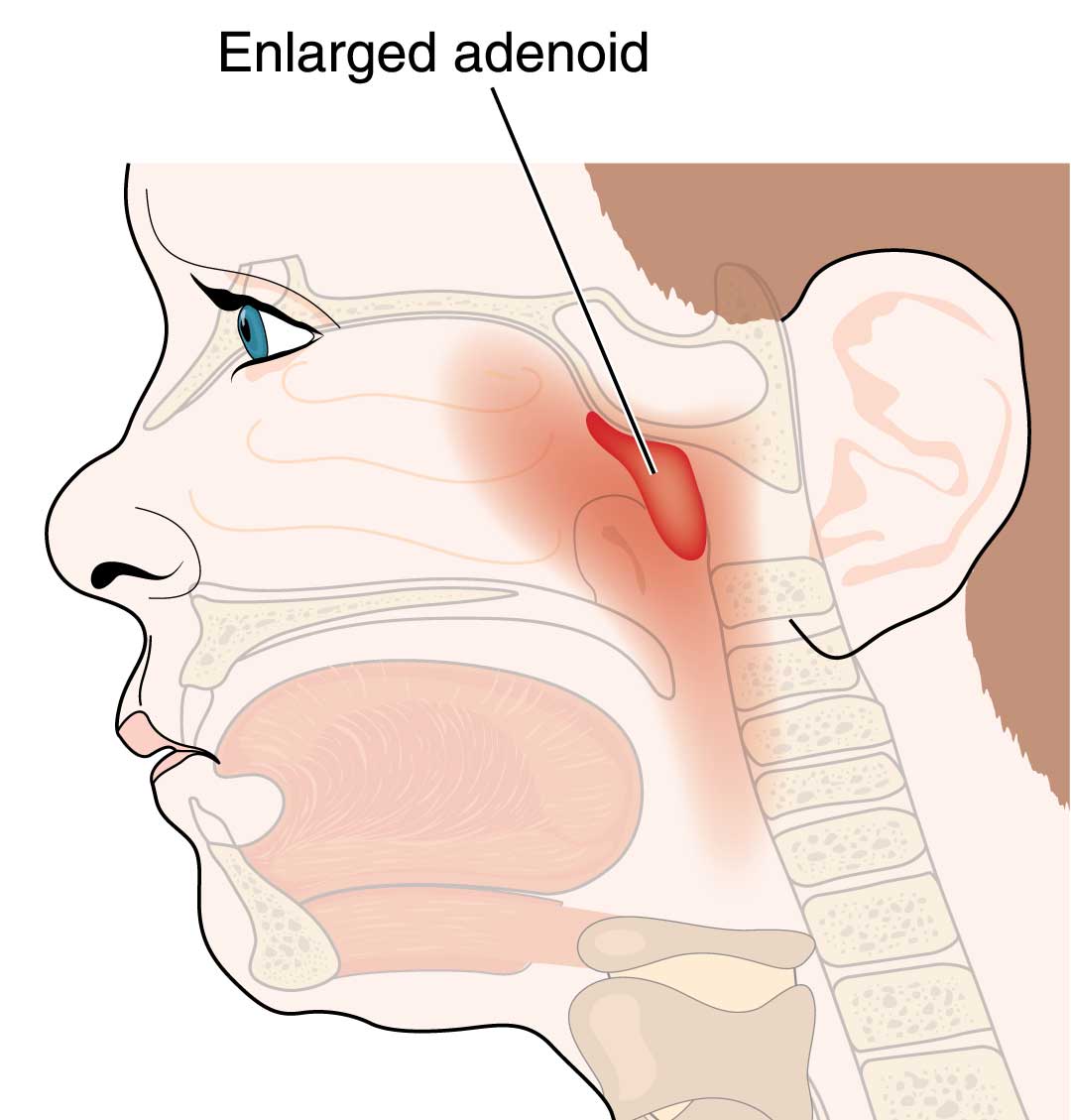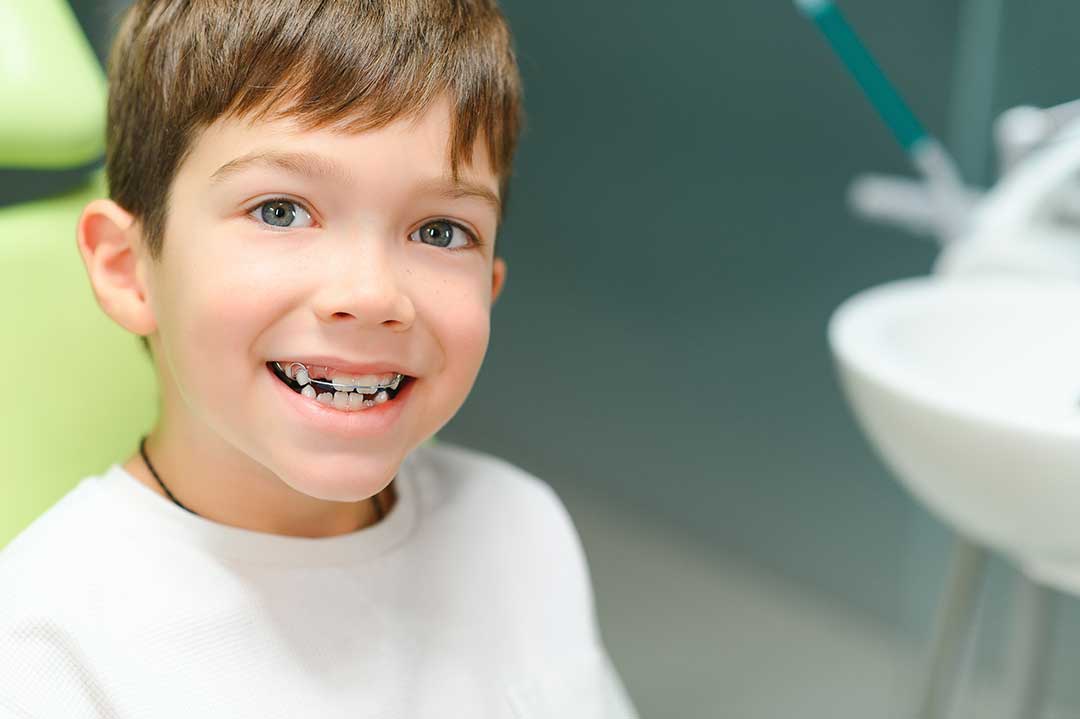A Pediatric Dentist’s Guide to Enlarged Adenoids, Mouth Breathing & Why Airway Health Matters
Table of Contents
What Are Adenoids and What Do They Do?
Adenoids are small, soft tissue glands located at the back of the nose, just above the roof of the mouth. They are part of the body’s immune system and help trap bacteria and viruses, especially in young children whose immune systems are still developing.
While adenoids play a protective role, they can sometimes become enlarged — especially due to frequent colds, allergies, or chronic infections.
How Enlarged Adenoids Affect Breathing
When adenoids swell, they can partially or completely block the nasal airway. This forces children to breathe through their mouth, especially during sleep. While this may seem harmless at first, chronic mouth breathing can lead to deeper issues affecting not just dental health but overall development.
See also
Mouth Breathing in Children: Causes, Complications & Cure

Signs Your Child May Be Mouth Breathing
Here are some common signs to watch for:
If you’ve noticed any of these symptoms, it may be time to have your child evaluated.
Why Pediatric Dentists Pay Attention to Airway Health
At Drs. Nicolas & Asp Centers, our pediatric dental team looks beyond the teeth. We assess how your child breathes because chronic mouth breathing — often caused by enlarged adenoids or tonsils — can affect jaw development, facial growth, and even cognitive function.
Early identification can prevent long-term complications and guide proper development during critical growth years.
How Mouth Breathing Impacts Facial and Jaw Development
Here’s what prolonged mouth breathing can influence:
These changes can lead to the need for orthodontic or even surgical correction later in life — which is why early diagnosis and intervention is so important.
What You Can Do as a Parent
Start by simply observing your child — especially while they sleep. Are they breathing through their nose or mouth? Snoring? Sleeping with their mouth open?
During the day, gently encourage nose breathing and try to move away from habits like thumb sucking or pacifier use after age 2. These small steps can make a big difference over time.
And if something doesn’t feel quite right, trust your instincts. Talk to your pediatric dentist — we’re here to help. In some cases, we may work alongside ENT specialists or speech therapists to make sure your child gets the right support early on.
See also
Why and How to Wean Your Child from the Pacifier
How We Can Help at Drs. Nicolas & Asp
At Drs. Nicolas & Asp Centers, airway evaluation is a key part of our holistic pediatric dental care. We use detailed assessments to check for signs of enlarged adenoids and mouth breathing habits — because we know your child’s health starts with how they breathe.
By catching issues early, we can help guide proper facial and jaw development, reduce the need for complex treatments in the future, and protect your child’s overall well-being — from the airway and up.


